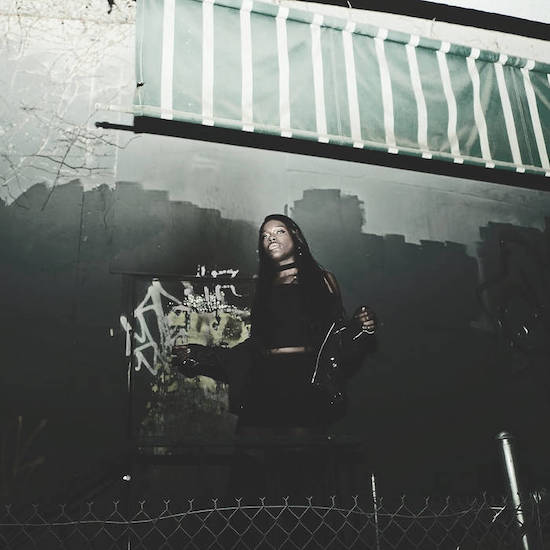Jasmine Infiniti’s debut album BXTCH SLÄP takes us on a ride of over one hour of jittering dark techno. Working through shades of east coast ballroom and other hybrid strains of future-club music, including the dirtier ends of drum n bass and gabba, Infiniti’s style is both pulsating and deeply comforting in its familiarity.
Following on from her EP SIS, released by Club Chai in 2018, BXTCH SLÄP comes out via the queer collective and regular club night New World Dysorder. Infiniti’s presence works as part of renewed efforts to reclaim black, queer spaces within contemporary dance music. The intro track, ‘Bxtch Slap – Queen of Hell’, operates as a cipher for the rest of the record, where the darkened club dwellings hint at haptic assemblies that roll through the rave, reminiscent of recent work by Nkisi, for instance.
Perhaps what’s interesting is how the entanglement of bass, dread, disembodiment, abstraction, and the joy of movement is intensified by the current social context of lockdown and quarantine. The idea of isolation, social distance, and lacking safe access to public spaces is perhaps familiar to many racialised queer people, and confronts an everydayness where the slip from the rave to the confines of domesticity are constantly being negotiated as connected phenomena. Listening to Jasmine Infiniti in that context heightens the sensory experience of the sonic in its everydayness, beyond any rave nostalgia or escapist fantasy.
Everydayness here, as Gabe Meier has been proposing, deals with the issues of ordinary people. Meier goes on to think about how a sonic mapping of the city can place oneself “in a social and historical context and mov[e] through the urban totality’, emphasising dance music “that dwells in the zone of the unresolved”. For Maier, this enables the possibility of being able to “step confidently into an uneven, catastrophic now”.
What I’m proposing, through the hybrid strains of Jasmine Infiniti, is perhaps an emphasis on placeless-ness, rather than place-ness. What this means is to really think about how the context of the everyday – lockdown or not – is constantly being undercut, pitched-down, by the dissident social expressions of racialised, queer life that we call dance music. If BXTCH SLÄP tells us anything, it’s to keep the music pulsing in all its dread and joy.


